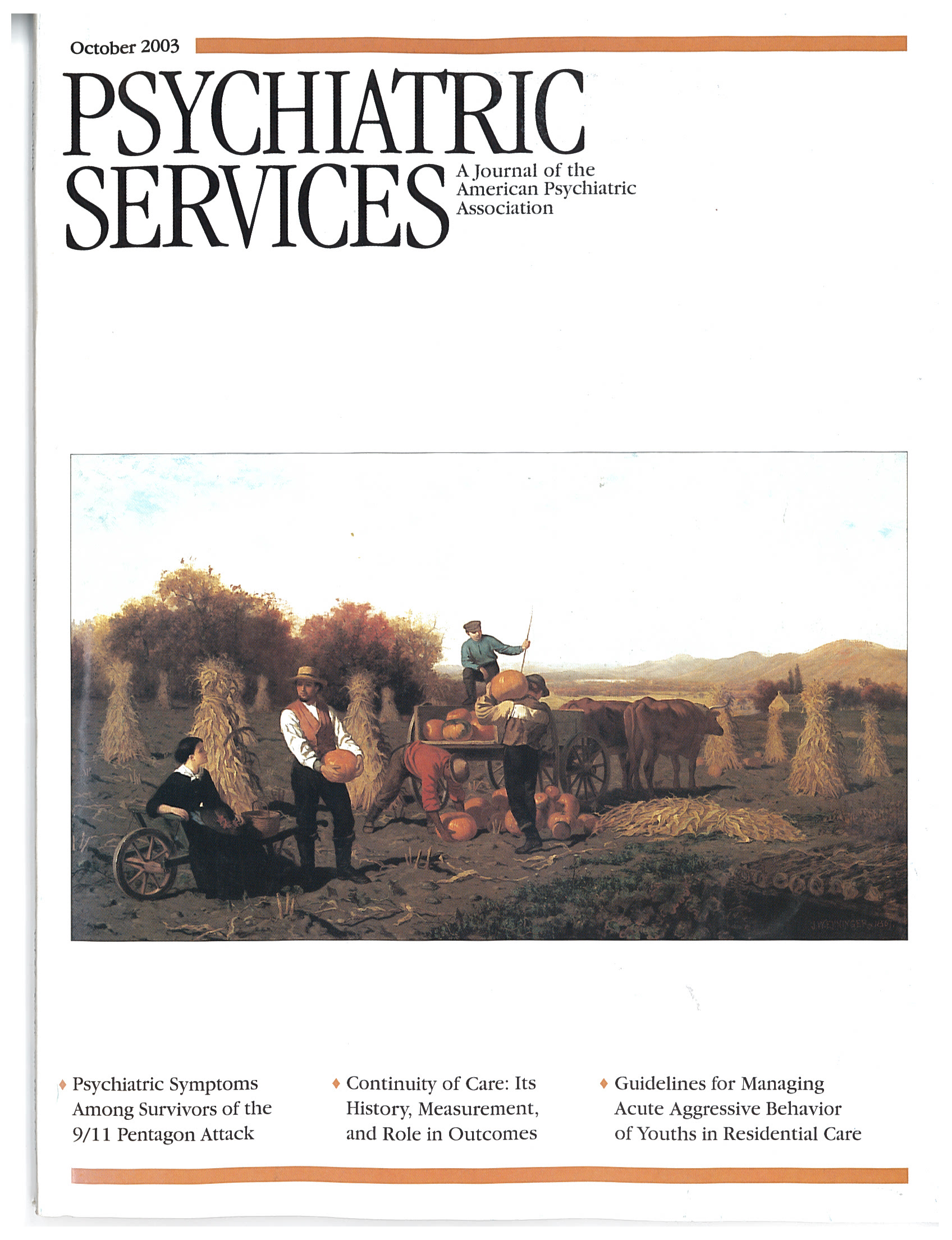Acute Stress Disorder, Alcohol Use, and Perception of Safety Among Hospital Staff After the Sniper Attacks
Abstract
OBJECTIVE: This study examined emotional and behavioral effects on hospital staff after a series of sniper shootings in the Washington, D.C., area. METHODS: Employees of a large tertiary care military hospital were anonymously surveyed about their perceptions of safety and threat, changes in activities, and peritraumatic dissociation as possible risk factors for acute stress disorder, depression, and increased alcohol use the week after the sniper suspects were captured. RESULTS: Of 382 study participants, whose average age was 39 years, 24 (6 percent) met criteria for acute stress disorder, 13 (3 percent) reported increased alcohol use, and 31 (8 percent) met criteria for depression. Risk factors for acute stress disorder were female sex (odds ratio [OR]=2.59), increased alcohol use (OR=5.1), comorbid depression (OR=7.28), lower perceived safety, higher perceived threat, higher levels of peritraumatic dissociation, and greater numbers of decreased activities. Risk factors for increased alcohol use were comorbid depression (OR=4.02), lower perceived safety, higher perceived threat, and higher levels of peritraumatic dissociation. Risk factors for depression were lower perceived safety and higher levels of peritraumatic dissociation. CONCLUSIONS: The sniper shootings were associated with substantial changes in perceived safety and threat assessment as well as decreased activities outside the home among highly educated hospital employees. Levels of acute stress disorder were similar to levels of posttraumatic stress disorder in New York City after the terrorist attacks of September 11, 2001. Peritraumatic dissociation was associated not only with acute stress disorder but also with depression and increased alcohol use after the attacks.



